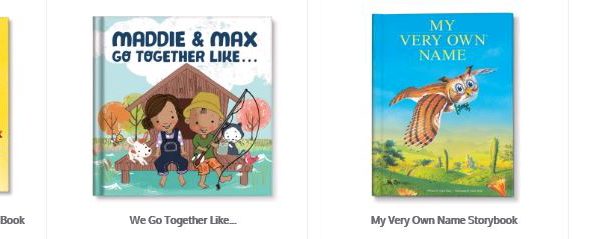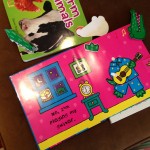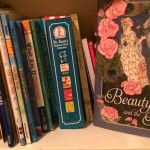My 4-year-old daughter can’t read yet, but she thinks she can. She “reads” bedtime stories to her little brother, her dolls and her stuffed animals, making up words and rhymes to go along with a given book’s pictures.
Recently, as she was reading her own version of “Hop on Pop,” I repeatedly corrected her and tried to turn the moment into an actual reading lesson. She became frustrated and stopped reading, and I wondered if correcting her was the wrong approach.
Turns out, it likely was. Encouraging pretend reading is just one of the seven (perhaps surprising) tips for raising a reader that make up today’s hint.
Encourage pretend reading. According to Raising A Reader, a nonprofit focused on helping children ages 0 to 8 develop literacy habits, letting young children pretend read, whether to themselves, others or even a family pet, is actually one approach to encourage a love of reading.
Children “who have not yet learned to read will begin to think of themselves as ‘readers’ which is very important to lifelong learning,” the organization wrote in a statement. In fact, experts say pretending to read is an important sign that your child is learning the purpose of a book and becoming a reader.
Make it personal. Children love hearing stories about themselves, so they’ll likely enjoy learning how to recognize the spelling of their names with the help of personalized books. One company, i See Me!, offers a wide variety of hardcover and board books with stories that can be personalized to feature a child’s name. The books are very cute, and I’ve added them to my list of go-to baby and birthday gifts. Enter to win a $75 gift certificate to i See Me! below.
 Another related idea from Raising A Reader that I’ve added to my go-to easy activity list: Write a book with your children about “them, your family, their favorite foods or toy, their friends or whatever interests them most,” even their favorite television show, movie or video game. A great tip “if you’re worried that your child spends too much time watching TV or playing video games.”
Another related idea from Raising A Reader that I’ve added to my go-to easy activity list: Write a book with your children about “them, your family, their favorite foods or toy, their friends or whatever interests them most,” even their favorite television show, movie or video game. A great tip “if you’re worried that your child spends too much time watching TV or playing video games.”
Embrace music. In a hint on the musical way to raise a reader, Hint Mama Contributor Karen Witham wrote about the proven role music can play in developing literacy. So, here’s another reason to sign-up for that baby and toddler music class.
There’s a book for that. Help prepare your kids for major (and minor) life transitions with the help of books, as there’s a children’s book for just about every life event. In my home, we’ve used books to help teach our children about everything from giving up a pacifier and going to the dentist to becoming a big sibling, starting school and visiting a new destination. Not only do these sorts of stories offer life lessons, they also can help teach little ones about the breadth of information available via reading.
Take reading breaks. This is another fun tip from Raising A Reader: Pack a book when you take your kids somewhere for the day “and take a reading break” as time permits. You could even opt for a book about something related to your day’s destination and events.
Point. Don’t be afraid to point to each word as you read to your children. According to Raising A Reader, watching you point can help kids learn about the connection between the words out of your mouth and the words on the page, as well as teach them that we read from top to bottom and from left to right.
Make it fun. This one comes from my daughter’s preschool teacher: Rather than drill how to write and read into your young child via at-home workbooks, incorporate learning these skills into games you already play with your little one. For instance, in our home, we’re in the midst of transitioning our “I Spy” colors game into an “I Spy” letters game.
What surprising tips for raising a reader did we miss? Share your tips below, and enter to win a $75 credit from i See Me!
Follow Hint Mama on Facebook and Twitter, and read more about her and her disclosures.







start reading to your kids as babies. then it becomes a habit! when they’re babies you can read them picture books or even just your own books to help model reading.
Great-tips…
another-one-along-the-lines-of-the-one-you-mentioned-about-them-making-their-own-books-about-life-events-etc..another-thing-we-did-is-when-my-elementary-age-kids=who-could-read-we-would=read-a-book-together-then-they-would-make=a-simplified-version-of-it-for-the-little-kids-and-draw-pictures-and-big-pages-and-only-a-sentence-or-two-on-each-page.-Then-they-would-read-those-to-their-younger-siblings.
Another-one-they-loved-when=we-got-into-practicing-reading-together-and-worked-especially-well-for-the-one’s-who-didn’t-like-reading-as-much-as-some-of-the-other-kids…I-would-read-parts-aloud-and-had-certain-characters-in-the-book-and-change-my-voice-for-each-one-and-they-would-read-the-other-parts-and-
Also-they-thought-it-was=more-fun-to-read-when-I-tape-recorded-them-reading-aloud-and-they-could-change-voices-and-even-do-sound-effects-to-make-it-more-fun.They=liked-hearing=it-back.
You need to start when they are babies.
Allow them to pick out the story that you read to them each night so that they are included in the process. My husband and I take turns putting him to bed, which he enjoys because we each read to him in a different style.
I think taking my child to storytime at the local library has encouraged her to be a reader. She gets excited that she is going to get to hear some stories with other children and participate in a craft, game, or dance–whatever the librarian has planned–afterwards. I also make sure we visit the library at least once a week, and she gets to pick out a book or two on her own and talk to the librarians. She has made quite a few friends there and views library visits and books in general as fun treats!